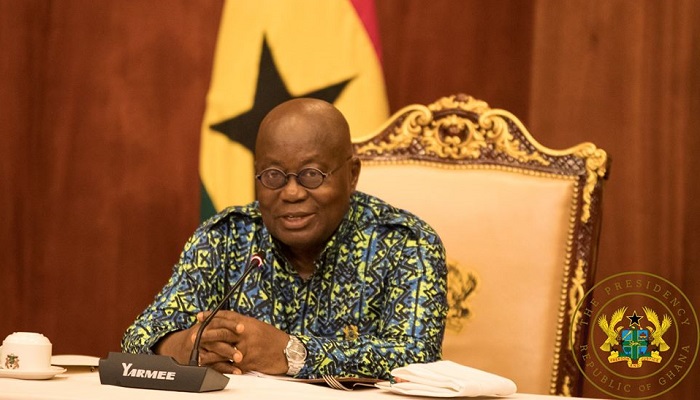Gov’t won’t collapse local automobile industry – Akufo-Addo assures
President Nana Addo Dankwa Akufo-Addo has assured players in the value chain in the importation of second-hand vehicles that the policy of developing the local automobile industry is not targeted at the destruction of their livelihoods.
“We will not make a policy that will lead to the destruction of the lives of people like you. It will not make sense at all,” he said, adding, however, that “we live in a world where there is constant change and there is the need for us to adapt”.
Self-reliant
He said the ultimate aim was for Ghana to be self-reliant, provide vehicles for all classes of income earners, cut the importation of vehicles, while ensuring that those in the local value chain gradually shifted into the new paradigm of the local production of vehicles.
President Akufo-Addo gave the assurance during a meeting with members of the Vehicle and Assets Dealers Union of Ghana and members of all associations in the value chain of importation, sale and repair of imported vehicles in the country.
The meeting, which was at the Jubilee House, was at the instance of the President to discuss concerns raised by the members about the new Automobile Development Policy.
The concerns include lack of a clear definition of salvage vehicles, increase in import duties, the requirement of certification, among others.
Members of the association had argued that not all Ghanaians could afford the cost of the vehicles being assembled or that would be manufactured in the country.
President
Addressing their concerns, President Akufo-Addo assured them that next Monday a government team would meet them to commence deliberations to address their concerns.
He said his policy had always been to ensure that the country became self-reliant and cited an instance during the onset of the Covid-19 pandemic when some markets in the country nearly collapsed because China, from where they took their imports, had closed its borders.
That, he explained, was because traders could not move to that area and import things and said the pandemic had opened the eyes of the world to the fact that every country should create a paradigm of self-reliance and self-sufficiency, with little reliance on others.
Investment
He said the prudent management of the economy attracted the automobile industries into the country and he was confident that they would make Ghana have a home-grown complete automotive industry, transfer of technology, create employment, reduce the importation of vehicles and its attendant impact on the economy.
He said because the country did not have the capital, it had to establish a policy that would attract those companies, with the understanding that at the end of the day, the current structure of the automotive industry in Ghana would find a way of transforming itself to the clutch of this home-based localised automotive industry.
Imports
The President discounted claims by the local players that it was only foreign imports that could guarantee low prices of vehicles for low-income earners and said all over the world, domestic automobile industries were capable of providing cars for low-income people and Ghana should be working towards that.
VW
He said the basis for the establishment of Volkswagen (the car for the people) was to offer low-income earners in Germany at the time cars, just like people at the top who could have access to Delmar, Benz, BMW, among others.
“It is possible, in a well-orchestrated, well-constructed automobile industry in a given country, that all the various ranges of income earners can find a way of satisfying themselves and their needs for cars and not necessarily through foreign imports,” he said.
He said at the end of the day, the government’s aim was to make laws that would improve the circumstances of the people and that would also find acceptance among the populace.
Kyerematen
The Minister of Trade and Industry, Mr Alan Kyerematen, noted that throughout the development of the policy, the ministry engaged all stakeholders, some of whom raised concerns about the policy.
He said they had raised concerns about the definition of salvage vehicles, the requirement for certification for importation of salvaged vehicles in the new law and some taxes.
The Spokesperson for the Vehicle and Assets Dealers Union of Ghana, Mr Joshua Opoku-Agyemang, said the union was not against the establishment of assemblying and manufacturing plants in Ghana but did not want their livelihoods to be lost in the process.


